“Science is higher than sanctions”: Russian and Norwegian scientists held a discussion about the Arctic
[ad_1]
Back in the 9th century, Norwegians traveling to the northeast mentioned a rich country where there was plenty of everything, and people knew how to cast magic. Scientists are inclined to believe that we are talking about the Russian North. The most famous is the story of the Viking Ottar from Holugaland, who discovered the mysterious Biarmia. However, he could not swim far along the river, which is identified as the Northern Dvina.
This journey can be considered the first attempt to build the Northern Sea Route (NSR). These days this problem is extremely acute. In December 2023, President Vladimir Putin stated that “The Northern Sea Route is becoming more efficient than the Suez Canal. There, the economics of moving goods increases significantly.”
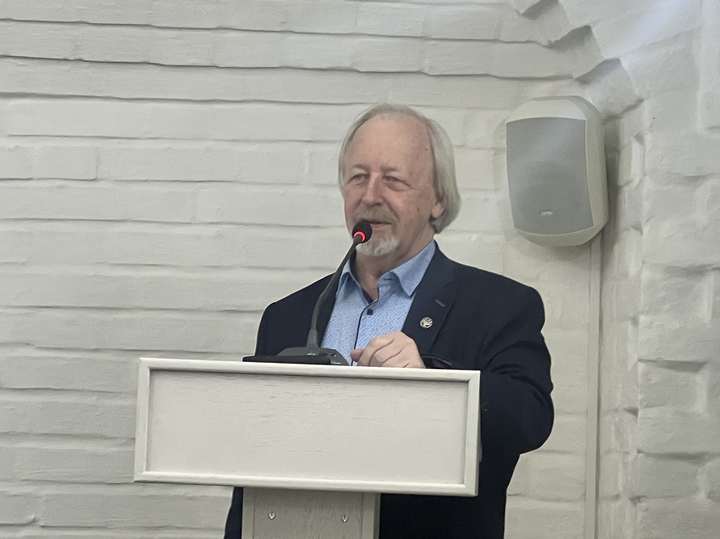
The NSR is the shortest sea route between Europe and East Asia, in particular between the European and Far Eastern parts of Russia, which passes through the seas of the Arctic and partly the Pacific oceans. Reducing cargo transportation time always promises gains in trade, so the development of the NSR is especially important in the current situation.
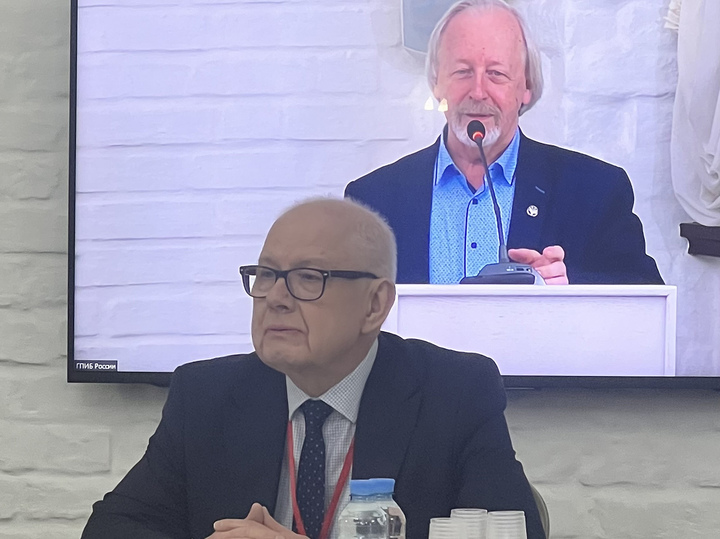
Merchants and explorers of the seas of the Russian and Western worlds tried to find the route from Europe along the seas of the Arctic Ocean, starting from the 15th century, and the history of its development, and the round table held on February 21 at the State Public Historical Library (GPIB), organized jointly with the Northern ( Arctic) Federal University named after. M.V. Lomonosov (Arkhangelsk).
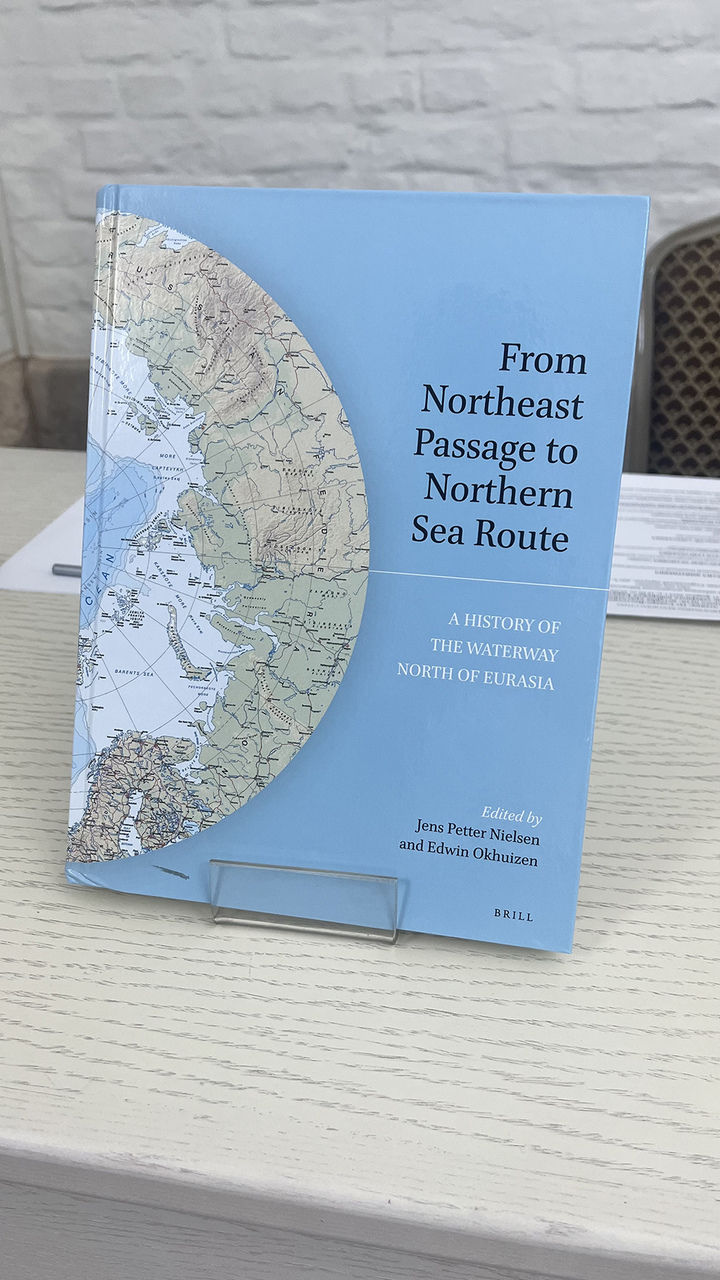
As GPIB director Mikhail Afanasyev noted, this was the first meeting of scientists in the library dedicated to Arctic problems, and it was held on the occasion of the replenishment of the collection with the collective monograph From Northeast Passage to Northern Sea Route: A History of the Waterway North of Eurasia. Brill Publishers. 2022. The book was received as a gift from the executive editor and one of the authors of this book, Professor Jens Petter Nielsen of the Arctic University of Norway. The authors of the monograph are Russian and Western scientists.
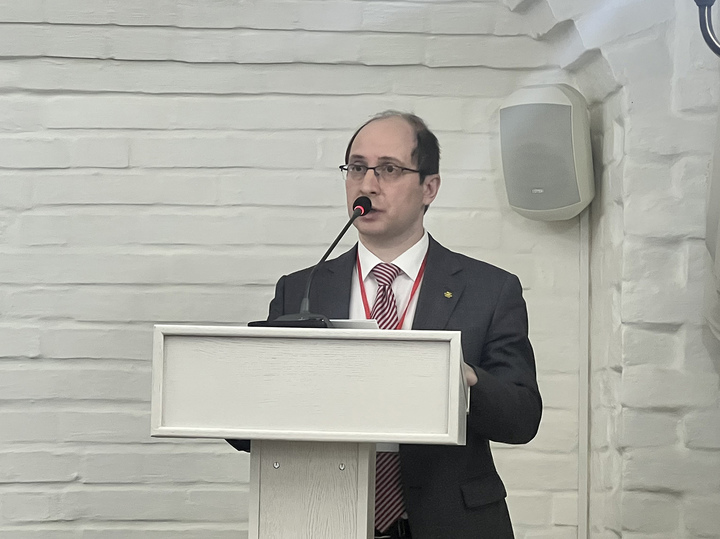
In his welcoming speech, the scientific director of the Institute of World History of the Russian Academy of Sciences, Academician Alexander Chubaryan, emphasized that now the topic of the Northern Sea Route “has attracted special attention: historians and political scientists are interested in what Eurasia is, as a geographical concept and meaning as a value category. For Russia, this area is of particular importance: it covers a significant part of the adjacent territory of Russia, it connects the most important ports. This is something that affects the interest of other countries as well.”
He also added that “in the current difficult conditions, it is important that the presentation of the book and discussion of the issue takes place in Russia. I think this is an example and indicator that science, like culture and art, should not be politicized, that science is above sanctions. This is the collaboration of scientists, this is the interaction of scientists, which, it seems to me, has proven its vitality and necessity, and should continue in the future. We, scientists, are now working on the problem of the so-called new world order, which is already recognized throughout the world, in all parts of the world. The need to develop new absolutely conceptual approaches to what the new world will be like. In this sense, it is now important for us to look at the prospects for the future of this region.”
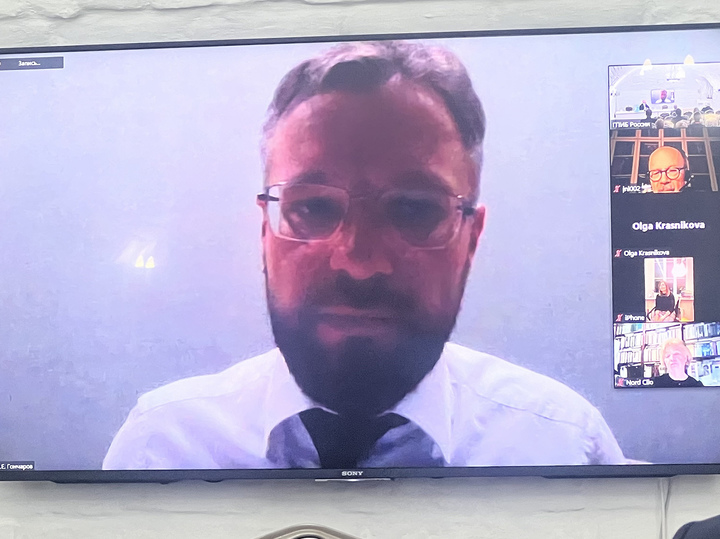
Professor Nielsen spoke about the concept of the book, its content and noted the importance of the fact that the chapters were written by scientists from different countries, which made it possible to give the most objective picture of the study of the NSR, its discovery and further existence.
Chairman of the Board of the Russian Historical Society, Executive Director of the History of the Fatherland Foundation Ruslan Gagkuev said during his speech that “the unexplored spaces of the Arctic and the Arctic Ocean have always inspired scientists and travelers around the world. It is symbolic that back in the 18th century, the importance of agricultural development of these lands was emphasized by one of the most famous natives of the Russian north, M.V. Lomonosov. The Northern Sea Route is a unique route, which is no coincidence compared to the construction of the Suez and Panama Canals. I would like to note that last year alone, 35 million tons of cargo were transported along it.”
The round table was held in a hybrid format, which allowed direct participation from Norway, St. Petersburg, Murmansk and Arkhangelsk. The scientists who spoke asserted the importance of the book as a source not only for understanding the Arctic vector of Russian policy, but also for the work of scientists.
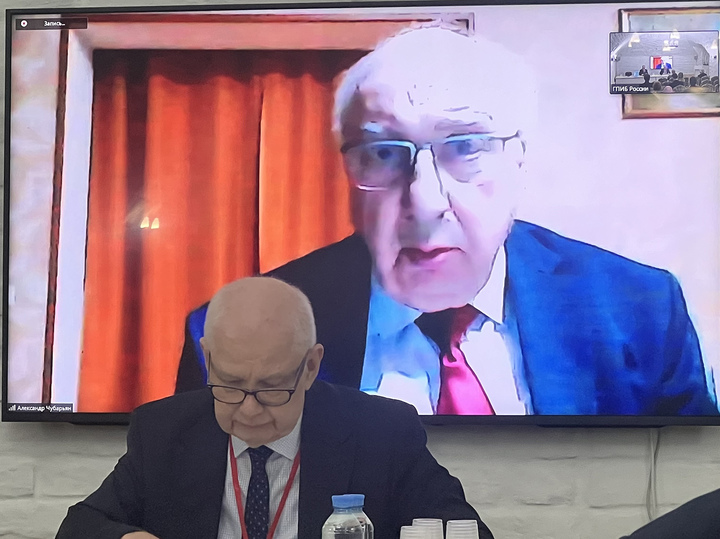
Professor Vladislav Goldin spoke about the prospects for the dynamics of growth in the volume of traffic in the NSR water area: “From 2024 to 2030, it is planned to begin year-round navigation throughout the NSR water area, including similar cargo transportation in the eastern direction through the construction of a new powerful nuclear icebreaker of Project 10510 “Russia” ” Moreover, according to Rosatom’s forecast, the rate of cargo transportation along the NSR in 2030 should reach 150 million tons, of which 30 million tons will be transit. After 2030, it is planned to increase not only domestic transportation, but also international transit.”
Thanks to the publication of the book, according to the round table participants, and its presence in the collections of the historical library, new documents are being introduced into scientific circulation, which is very important for domestic historiography. However, some archives that are very important for the history of the Arctic still remain uncovered – in particular in Murmansk and Arkhangelsk. The author of the biography of Fridtjof Nansen, Natalia Budur, complained that the available materials in the archives of Krasnoyarsk and Irkutsk regarding the 1913 expedition of Jonas Lida, in which Nansen also took part, which passed along the NSR in 1913, still remain unpublished.
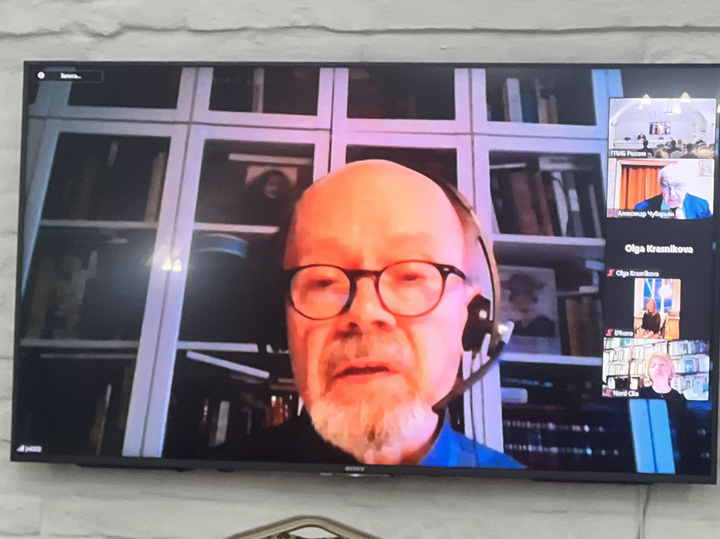
Leading researcher at the Institute of World History of the Russian Academy of Sciences, Alexey Komarov, spoke in a conversation with a MK correspondent about the idea of the event:
“The book was published in 2022, when our relations with the West began to change, which led, among other things, to the suspension of the exchange of scientific literature. One of the responsible editors and initiators of the publication of the collective monograph that we are talking about, Professor Emeritus Jens Petter Nielsen, wanting to make it accessible to Russian readers, sent me a copy through Murmansk so that I could donate it to the State Public Historical Library. Which is what I did. During my meeting with representatives of the library, a proposal was made to organize a presentation, but we thought about it, consulted and decided that it would be better to organize a round table called “Arctic Readings. From the Northeast Passage to the Northern Sea Route,” in which both members of the monograph’s author’s team and specialists interested in the history of the Arctic and the Northern Sea Route could take part. We did this because interest in the study and development of the Arctic in our country is growing noticeably. Also M.V. Lomonosov said that “Russian power will grow through Siberia and the Northern Ocean.”
— Alexey Alekseevich, what is the importance of the book for the general public?
— As Maria Ilyicheva, associate professor of the Murmansk Arctic University, noted, this book can serve as a kind of manual for training new specialists in the history of the Arctic and Arctic regional studies. Not only we, ordinary researchers, understand the importance of this area, but also the country’s leadership, including Russian President Vladimir Putin, tirelessly emphasizes this: “The Arctic zone has a special, strategic importance for us, it is a region with enormous economic opportunities.” I would also like to hope that in the not too distant future there will appear both generalizing monographs on Arctic topics and studies highlighting certain aspects of the history of the development of the Arctic and the history of the Russian North, prepared by domestic authors.
— How important are such events as the donation of a book to the Historical Library and the organization of a round table for the further development of scientific ties in the current difficult circumstances?
— The event that took place has several positive aspects. It shows that the once extensive but now significantly reduced ties, in this case with Norway, have not been completely severed. The readings that took place, as noted by the director of the State Public Historical Library, Mikhail Afanasyev, became the first readings in the State Historical Library dedicated to Arctic topics. To be honest, I was surprised, because knowing that this wonderful library does a lot of work to popularize knowledge, I thought that Arctic topics were already on the list of their events. But every misfortune is the beginning, our readings can become the start of a good tradition. This kind of event allows you to arouse interest among researchers, help promote Arctic topics, attract scientific youth to them, and youth are our future
[ad_2]
Source link








